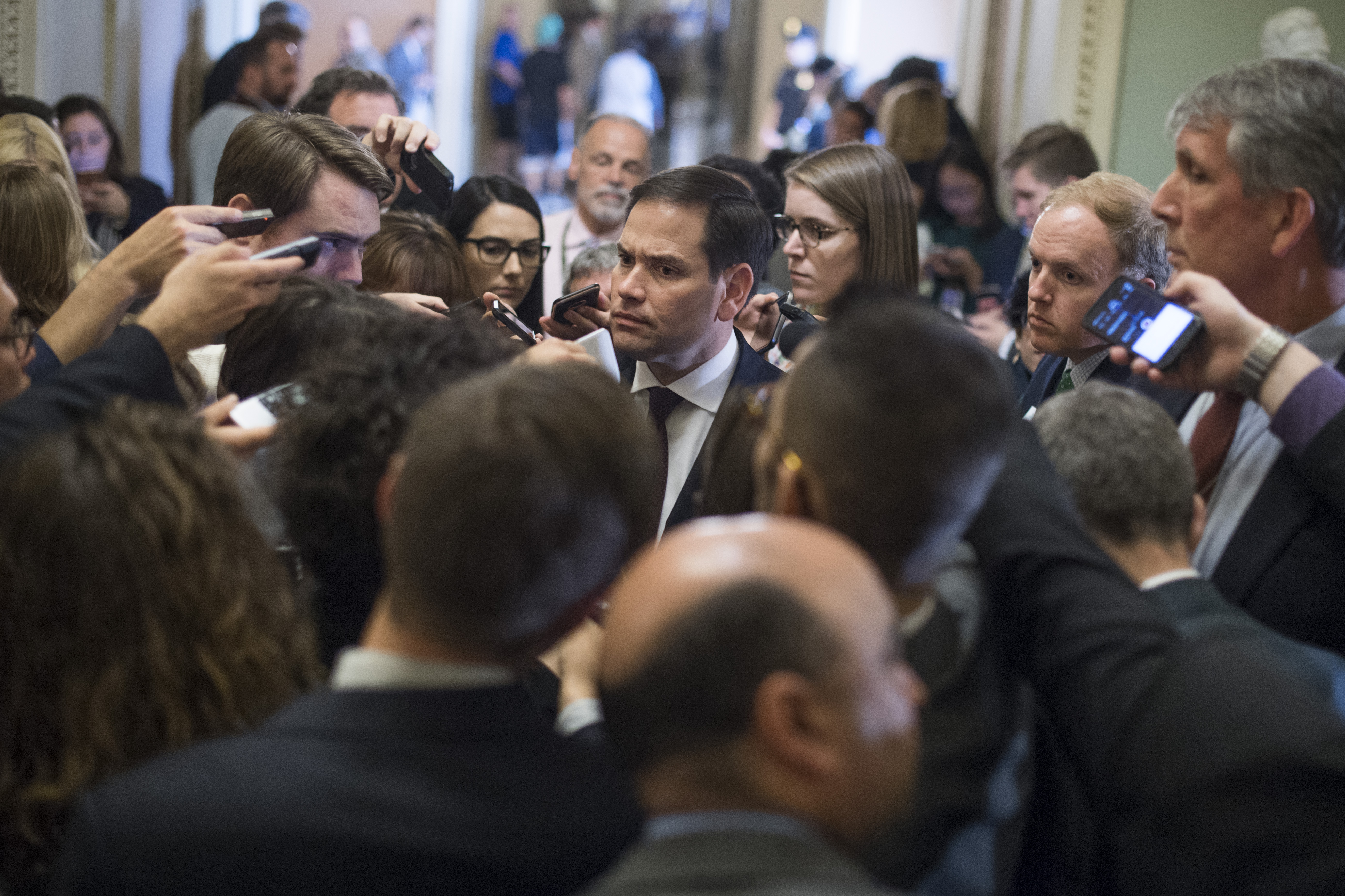GOP leadership fight threatens to spill into the Senate


A free daily email with the biggest news stories of the day – and the best features from TheWeek.com
You are now subscribed
Your newsletter sign-up was successful
With Republicans still grappling with the party's lackluster performance in what was expected to be a "red wave" midterm election, questions about who will now lead the GOP have begun growing louder. Lawmakers are jockeying for influence and position ahead of the coming legislative term — and with an eye on 2024 as well. That dynamic, which has already complicated the formerly straightforward bid by House Minority Leader Kevin McCarthy (R-Calif.) to become Speaker of the House under a pending Republican majority, now seems ready to spill into the Senate as well.
On Friday, Sen. Marco Rubio (R-Fla.) declared that "[t]he Senate GOP leadership vote next week should be postponed," adding that Republicans "need to make sure that those who want to lead us are genuinely committed to fighting for the priorities & values of the working Americans (of every background) who gave us big wins in states like #Florida."
Rubio's call to hold off voting on who will lead the Republican delegation in what increasingly seems will be a narrow GOP minority was echoed by his colleague Josh Hawley (R-Mo.) who argued it was premature to hold a leadership vote with the Georgia Senate race headed for a runoff.
The Week
Escape your echo chamber. Get the facts behind the news, plus analysis from multiple perspectives.

Sign up for The Week's Free Newsletters
From our morning news briefing to a weekly Good News Newsletter, get the best of The Week delivered directly to your inbox.
From our morning news briefing to a weekly Good News Newsletter, get the best of The Week delivered directly to your inbox.
The pair were joined by Sens. Ron Johnson (R-Wis.), Mike Lee (R-Utah), and Rick Scott (R-Fla.) who have reportedly begun whipping their colleagues against holding a leadership vote next week.
Hawley's electoral caution notwithstanding, the objections to the scheduled vote to determine party leadership are indicative of a broader schism beginning to take shape across the GOP as a whole; middling midterm results have called into question whether former President Donald Trump's influence is — or should be — waning within the party, particularly in the face of Florida Gov. Ron DeSantis' ascendancy as an electoral winner. Rubio's invocation of Florida's unambiguously positive election night results for Republicans is a not-so-subtle reminder of this dynamic.
While the situation in the Senate has yet to reach the heightened pitch as a similar conflict in the House, it does suggest that longtime GOP Senate leader Mitch McConnell's (R-Ky.) ability to keep the caucus in line may be complicated by the shifting loci of conservative power outside his immediate control. Trump, long an antagonist toward McConnell's leadership, has continued to agitate his base against establishment Republican figures — meaning calls to delay the GOP leadership vote may offer lawmakers a chance to see which way the conservative winds are blowing, lest they cast a ballot that could find them afoul of whichever wing of the party ends up more influential.
A free daily email with the biggest news stories of the day – and the best features from TheWeek.com
Rafi Schwartz has worked as a politics writer at The Week since 2022, where he covers elections, Congress and the White House. He was previously a contributing writer with Mic focusing largely on politics, a senior writer with Splinter News, a staff writer for Fusion's news lab, and the managing editor of Heeb Magazine, a Jewish life and culture publication. Rafi's work has appeared in Rolling Stone, GOOD and The Forward, among others.
-
 Colbert, CBS spar over FCC and Talarico interview
Colbert, CBS spar over FCC and Talarico interviewSpeed Read The late night host said CBS pulled his interview with Democratic Texas state representative James Talarico over new FCC rules about political interviews
-
 The Week contest: AI bellyaching
The Week contest: AI bellyachingPuzzles and Quizzes
-
 Political cartoons for February 18
Political cartoons for February 18Cartoons Wednesday’s political cartoons include the DOW, human replacement, and more
-
 Rubio boosts Orbán ahead of Hungary election
Rubio boosts Orbán ahead of Hungary electionSpeed Read Far-right nationalist Prime Minister Viktor Orbán is facing a tough re-election fight after many years in power
-
 Key Bangladesh election returns old guard to power
Key Bangladesh election returns old guard to powerSpeed Read The Bangladesh Nationalist Party claimed a decisive victory
-
 Epstein files topple law CEO, roil UK government
Epstein files topple law CEO, roil UK governmentSpeed Read Peter Mandelson, Britain’s former ambassador to the US, is caught up in the scandal
-
 Iran and US prepare to meet after skirmishes
Iran and US prepare to meet after skirmishesSpeed Read The incident comes amid heightened tensions in the Middle East
-
 EU and India clinch trade pact amid US tariff war
EU and India clinch trade pact amid US tariff warSpeed Read The agreement will slash tariffs on most goods over the next decade
-
 Israel retrieves final hostage’s body from Gaza
Israel retrieves final hostage’s body from GazaSpeed Read The 24-year-old police officer was killed during the initial Hamas attack
-
 China’s Xi targets top general in growing purge
China’s Xi targets top general in growing purgeSpeed Read Zhang Youxia is being investigated over ‘grave violations’ of the law
-
 Panama and Canada are negotiating over a crucial copper mine
Panama and Canada are negotiating over a crucial copper mineIn the Spotlight Panama is set to make a final decision on the mine this summer
